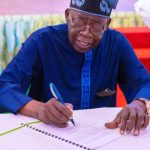Shock as 500 Indians, including Bollywood icons, named in Panama leaks
 A famous Bollywood actor. His daughter in law, a former Miss World. One of India’s top lawyers. Politically connected “industrialists.” For a country with 1.2 billion people, the 500 or so Indian nationals disclosed so far in the Panama Papers are hardly a blip, and few of the names a surprise.
A famous Bollywood actor. His daughter in law, a former Miss World. One of India’s top lawyers. Politically connected “industrialists.” For a country with 1.2 billion people, the 500 or so Indian nationals disclosed so far in the Panama Papers are hardly a blip, and few of the names a surprise.
The reason there are so few Indians may be fairly simple. While the rapidly growing and partially liberalized economy has created a significant amount of personal wealth, more than 43,000 Indian millionaires have left India in the past decade.
Perhaps Indians don’t typically offshore their assets. When they have the chance, they offshore themselves.
We should be alive to national differences as we explore the depths of the Panama Papers. The simple narrative of the Evil Rich cheating on their taxes is probably one we can dismiss right away. While tax avoidance may be a universal desire that cuts across culture and geography, presuming that an Icelandic prime minister and one of Bollywood’s most famous actors have the same reason to create shell companies to protect their assets is probably not correct. We can learn more from the differences than the similarities.
Indians have a number of reasons to utilize offshore structures. Income tax rates once reached 98.35%. The Indian government retroactively changed the tax laws and retrospectively taxed transactions going back half a century. The government remains embroiled in economy-killing fights with a number of companies who would otherwise be busy investing in the country. The governor of India’s central bank, the Reserve Bank of India, warned against a dangerous trend of questioning entrepreneurial earned wealth in the country.
As explained in a super-charming video by the Indian Express newspaper, before 2004 Indians were not allowed to expatriate assets or transfer more than a bare minimum amount of money. (Speak with nearly any Indian who went abroad for college before the 1990s and you likely will hear a diatribe about the pathetic amounts they were allowed to bring with them to the U.S. or elsewhere.)
Capital controls were re-imposed in 2013 to prevent the flight of assets in the face of a drowning rupee. The still-tight limits are one of the reasons India remains a very poor source of limited partners for private equity and venture capital funds who look at the level of wealth creation in India and expect fund-raising traction.
While these are early days, there are a few highlights disclosed in the Panama Papers so far.
Amitabh Bachchan, one of India’s most popular actors in the last 30 years, has denied knowledge of any of the Panamanian companies of which he is allegedly a shareholder, and a spokesman for his daughter-in-law, actress Aishwarya Rai, also denied the disclosures.
One of India’s most successful lawyers and largest individual taxpayers — Harish Salve — has declared disclosure of his legally made investments an unfair invasion of privacy. You can follow the parade of disclosures in the Indian Express, which was the India partner in the Panama Papers investigation.
While there yet may be some blockbuster revelations and investigations as the data rolls out, it’s highly likely that in India there will be a certain cache involved in being part of the Panama Papers. After all, being declared sufficiently endangered to warrant gun-toting security is a sign of status for many politicians and businesspeople.
My dear friend Kedar Misra, a distinguished poet and journalist from the Indian state of Odisha, was ironically hoping for some hometown representation in a recent Facebook post: “I was desperately trying to spot an Odia name in highly loaded ‘Panama Papers.’ Sadly, not a single name is there in that aristocratic black list.” FCPA Blog.
_____
- By Russell Stamets, a Contributing Editor of the FCPA Blog. He was the first non-Indian general counsel of a publicly traded Indian company and was general counsel for a satellite broadcasting joint venture of a large Indian business house.








